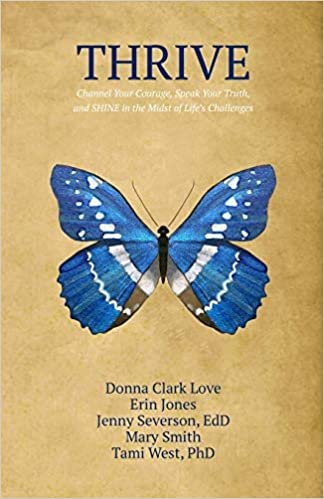What if INVALIDATE kids' emotions?
Dear EQuipped Leaders,
Today I want to discuss the third way to respond to kids’ emotions: invalidating emotions.
Like ignoring and inhibiting emotion, invalidating emotions falls in the destructive column of ways to respond. To me, it’s the most dangerous of the three not-great ways to respond to emotions.
Next week, we’ll get into the constructive ways to respond to emotion. But first, I think it’s important to deep dive into the destructive responses because they’re so common and largely socially acceptable despite being really harmful to kids’ emotional health.
Case in point: I was at a dinner party recently where a dad was talking about his experience parenting his three children. My husband and I are about to enter the world of having kids plural, so I’m always interested to hear what parents have to say about parenting multiple children. Unfortunately, this conversation went south really quickly.
The dad was sharing about a fun outing of mini golf that he had planned for his family. He clearly wanted this to be a positive experience for his family and was excited about it. Like most plans that involve small children, this family outing did not live up to the picture in his mind. Does any family outing ever? Any experience where the expectation is “Everyone in this family should be having 100% fun 100% of the time!” is really doomed to failure.
Naturally, his youngest daughter, early elementary school age kid, had a meltdown. She started sobbing in the middle of the mini golf course and refused to play.
So this dad is understandably not thrilled that his wonderful family moment is being derailed by his youngest child’s emotions. He tells everyone at the table how he handled the situation:
“I once read that the most selfish thing you can feel is pity, so I told her that if she kept crying, she was ruining the day for the whole family,” he boasts loudly and confidently. “She stopped crying, and we all got back to playing. Problem solved.”
I immediately bury my face in my food and start avoiding all eye contact with this man. I know I can’t hide my reaction if I look up, so I just wait for his horrible story to end and get out of there as fast as I can.
This happened a couple of weeks ago, and I can’t stop thinking about it. I think it’s haunting me because I know this man, this dad. I know he cares about his kids. He is a good man and wants to be a good dad to them. I like this man. And to hear him so confidently advise how to invalidate a young kid’s emotion and shame her for it, really bothers me. He has no idea the harm he’s causing his kid.
Instead of sitting down next to his crying daughter and asking her how she’s feeling and then teaching her how to regulate that feeling before moving on to more mini golf, he just totally invalidated her.
What’s the lesson for the daughter from his “pity = selfishness” speech?
If I cry in front of dad, he says mean words to me.
If I’m not happy 100% of the time, I’m ruining my family’s fun.
If I have a big feeling, I’m going to get in trouble for it.
If I feel bad, I am bad.
Dad gives me hugs when I’m happy, so I have to be happy.
Invalidating a kids’ emotions is like teaching them to ignore their thirst. His daughter was feeling sad for a reason. Her body was trying to tell her she needed something. Instead of giving her language for what she's feeling and helping her figure out what she needs and how to ask for it kindly, the dad shut everything down.
This is a fun mini golf trip. And if you can’t have fun, you don’t get to be here with the family. You should feel happy and grateful.
Translation for a kid: If I don’t hide my real feelings from my dad, I get in trouble.
I wonder how many more experiences like this before she learns to stop crying in front of her dad altogether, before she learns to hide the messier parts of herself. Will she learn how to regulate her sadness in a healthy way on her own? Her dad can’t handle his own emotions: he’s shaming a child for crying on a mini golf course. How is she supposed to learn how to regulate hers, alone?
Where does this land for you today?
Have you ever needed empathy from someone and they told you how you should feel instead?
Growing up, when you cried or “threw or a fit,” how did the adults respond?
What happened when the adults in your house felt big emotions? Were they allowed to express them? Did they do so safely and kindly?
Better EQuipped Together, Elizabeth elizabeth@appliedeqgroup.com
Elizabeth graduated with a B.A. and M.A. in English from the University of Central Arkansas. She taught English for a decade and got to read and write alongside kids in 7th, 8th, 10th, 11th, and 12th grade. The Applied EQ Group played an important role in her own personal EQ Intervention, and she is grateful to be able to spread the love and EQuip, empower, and encourage others. :)
Want to EQuip your school?
Connect with us through email or Schedule a free call with Jenny, our Director of School Partnerships, to discuss your school’s needs and if we’re a good fit for your campus.
Want to EQuip your library?
This post contains affiliate links. See full disclosure below.







